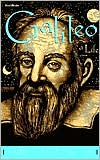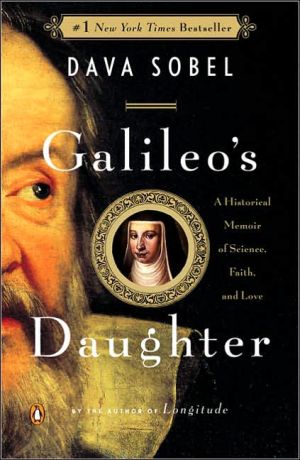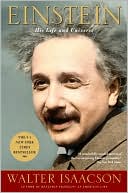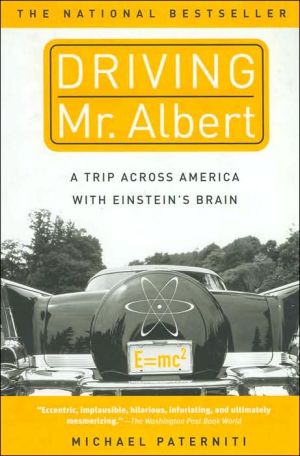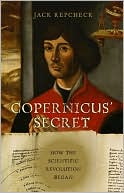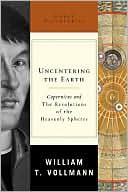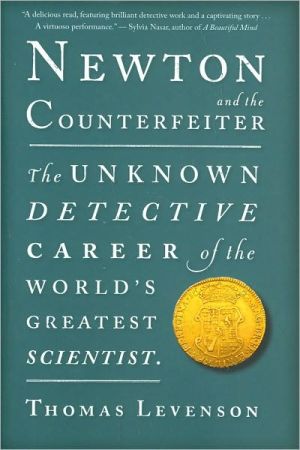Galileo
The critics in both the conventional and academic press praised the biography for its vibrant portrait of Galileo the man, its solid accessible exposition of Galilean science as well as its dramatic treatment of Galileo's clash with the Church over the issue of science vs. faith. \ The well-known historian of science, Owen Gingerich, of Harvard University said of the book, "James Reston, Jr. paints a vivid yet sensitive portrait of Galileo: his effervescent friendships in the rich...
Search in google:
The critics in both the conventional and academic press praised the biography for its vibrant portrait of Galileo the man, its solid accessible exposition of Galilean science as well as its dramatic treatment of Galileo's clash with the Church over the issue of science vs. faith. The well-known historian of science, Owen Gingerich, of Harvard University said of the book, "James Reston, Jr. paints a vivid yet sensitive portrait of Galileo: his effervescent friendships in the rich intellectual milieu of the Venetian Republic, the brew of excitement and egoistic paranoia that accompanied his astronomical discoveries with the telescope, the annoyances of a derelict brother and the lawsuit over his sister's dowry, the agony of the trip to Rome to face the Inquisition. It is a dramatic story, often told, but never as compellingly as this." Los Angeles Times Fresh sinewy, and altogether admirable.
\ The Wrangler\ \ In the summer of 1579, high in the sylvan meadows of Vallombrosa, the young man of fifteen declared his intention to become a monk. For four years, at an abbey famous for its discipline and charity, the monks had groomed the youth for this passionate moment of commitment. His declaration was the fulfillment of their attentions. They had schooled him in Latin and Greek, drilled him in mathematics and rudimentary science, and nurtured his interests in literature and drawing, as they guided his religious exercises. The welcoming of a novice was to be celebrated whenever it happened, but this strapping red-haired lad was special. He was a child of the grand duke's court, the son of a well-known musician, and a youth of evident promise whose mother was even related to an important cardinal in Rome. The order was honored. The abbot was pleased. The young man could rise high within their ranks.\ The distinguished father was coming for a visit. He was said to be a favorite of the grand duchess of Tuscany, a beautiful Venetian about whom there was always such interesting talk. The musician had even written madrigals in honor of the Lady Bianca and was said to be part of a fashionable circle of artists who were experimenting with combining music and myth into a single stage performance. But the monks already knew their novice's father to be difficult. He was abrasive and opinionated, altogether quite full of himself. It was easy to see the father's reflection in the son. The monks were eager for this holy, happy passage to be appreciated by the family, but they were apprehensive.\ For centuries theclimb up the mountain from Pontassieve had been the torment of the pilgrim. To Vallombrosa to pay homage to Saint John Gualberto they trudged, and then over the mountain into the upper valley of the Arno, to the sacred hermitage of the Camaldoli and on to La Verna and the bare rock where Saint Francis had received his stigmata. For the less devout, the carriage ride from Florence along the tortuous roads, along the sharp and dangerous spine of the Apennines, and through the dark fir forests could put a person in bad humor.\ Perhaps that explained the rudeness of the court maestro when he arrived at the abbey and began to criticize the behavior of the monks. Abrupt and disrespectful, he waved aside their talk about the novitiate. The joy of the monks about the accomplishments of his son or about the solemn ceremony of initiation did not interest him. Instead, to their shock, he accused them of inattention to his son's health. The boy had a serious eye infection. Could they not see that? In their preoccupation with the next world, the monks had shirked their duty in this world, he exclaimed. Besides, they were ill equipped to treat his son's condition.\ He proposed to take the boy away to Florence at once for medical attention. The boy, still in his hooded habit, climbed reluctantly into his father's carriage, and it moved off swiftly down the narrow viale, beneath the bower of beech branches, east toward Florence and liberation. The youth turned back for one last, wistful glance. He was leaving behind a career in the church—and a different course for history.\ When the carriage reached Saltino, the vista opened up over the wide Arno valley, and in the far distance, through the summer haze, the lovely domes and spires of the city were barely visible. The monks and their piety and their iron grip receded into the distance and in memory, and Vincenzo Galilei could relax. For him there was no backward glance. They could talk of God and the tonsure later. For now, he wished to talk to his son about the wool trade.\ \ That was in 1579. But the life of the young man had begun fifteen years before, far to the west. For decades his town of nine thousand poor and beleaguered citizens had been a dank, uninviting, deserted place. Situated upon a soggy plain, surrounded by malarial swamps, hemmed in by the white Alps of Carrara to the north and the Tyrrhenian Sea six miles to the west, it was fit only for ragged fishermen, Muslim slaves, and a few dissipated noblemen. Its river was clogged with seaweed and tamarisk. Its stagnant canals stank with sewage. Its water was foul, its air heavy, and its populace hostile and vulgar. The depleted place seemed destined to be visited forever by war, pestilence, and famine.\ But in 1564, Pisa was a town on the rise. The duke of Florence, Cosimo de' Medici, still flushed from his victory over the French at Siena several years before, had worked miracles in the town during the preceding decade. Although his terrible dungeons were full and his secret police terrifying to the Tuscan people elsewhere, he had drained the swamps around Pisa, and this had improved sanitation and purified the air. He had dredged the fetid canals and created a board of public works. He had reconstructed the crenellated brick walls, improving the gates and invigorating the trades. Along the Lung'Arno, the thoroughfare bordering the bow-shaped river bend in the center of the town, handsome new docks were built, and soon the river was filled with colorful boats laden with goods. In the town itself he had established a botanical garden, the first in all of Europe. And as a great supporter of the arts and music, he had reestablished the university as the preeminent place of learning in Tuscany. He could do everything, it seemed to his subjects, except straighten the towers.\
PreludeixPart IPisa1.The Wrangler32.Lucifer's Arm17Part IIPadua and Venice3.The Golden Ox394.Frogs and Mice585.The Stone and the Quarry83Part IIIFlorence6.The Nasty Seed1097.Black Fire and Floating Bodies122Intermezzo139Part IVFlorence and Rome8.O Ye Fools of Galilee!1459.The Cardinal's Scold15710.Gloom at Bellosguardo17211.The Heart of the Scorpion18812.Convulsion21113.The Trial of Galileo233Part VSiena and Arcetri14.Blind Obedience265Apology283Biographer's Notes287Selected Bibliography299Acknowledgments305Index309
\ Los Angeles TimesFresh sinewy, and altogether admirable.\ \ \ \ \ The Washington PostA brilliant, masterful biography.\ \
